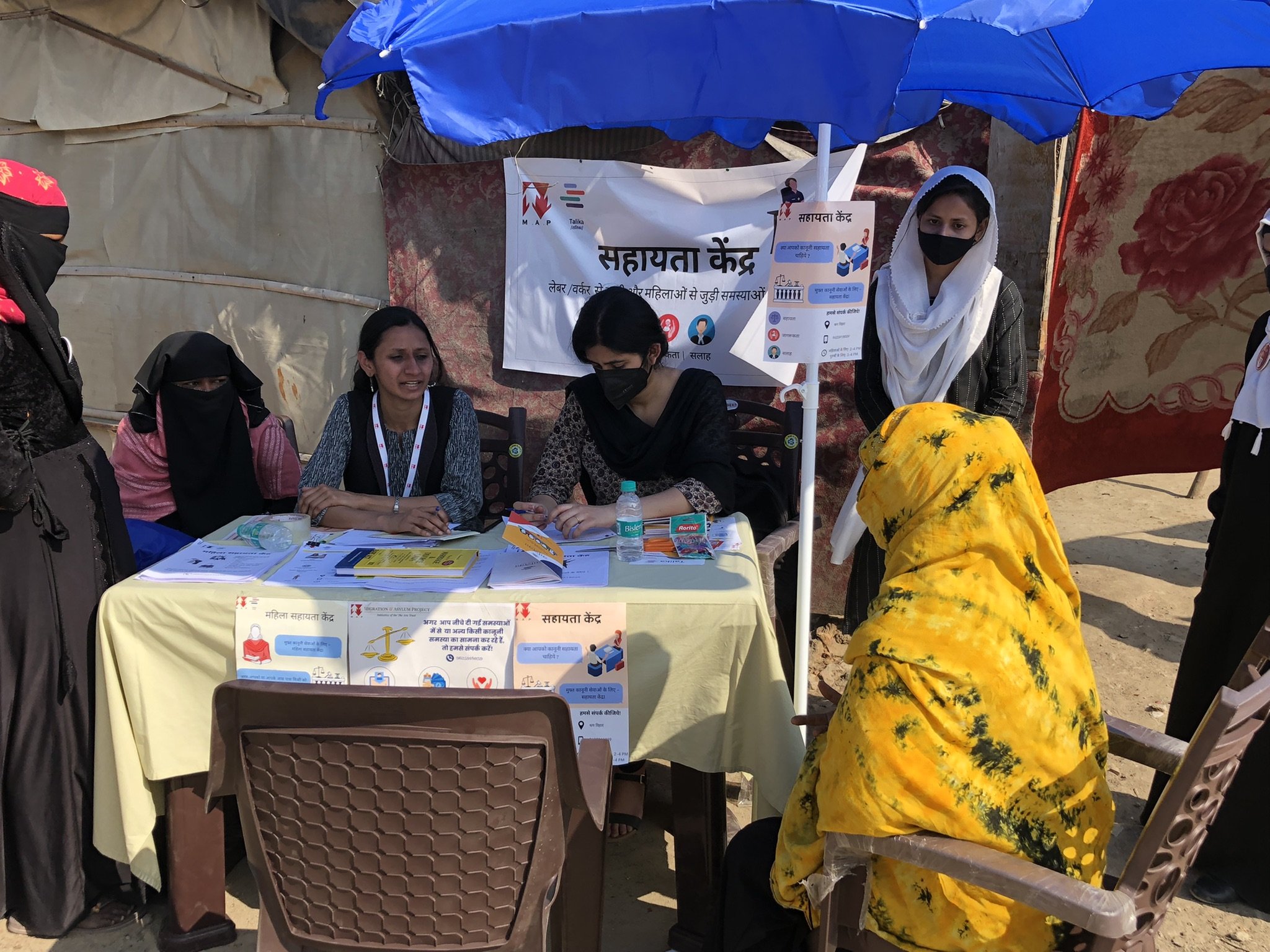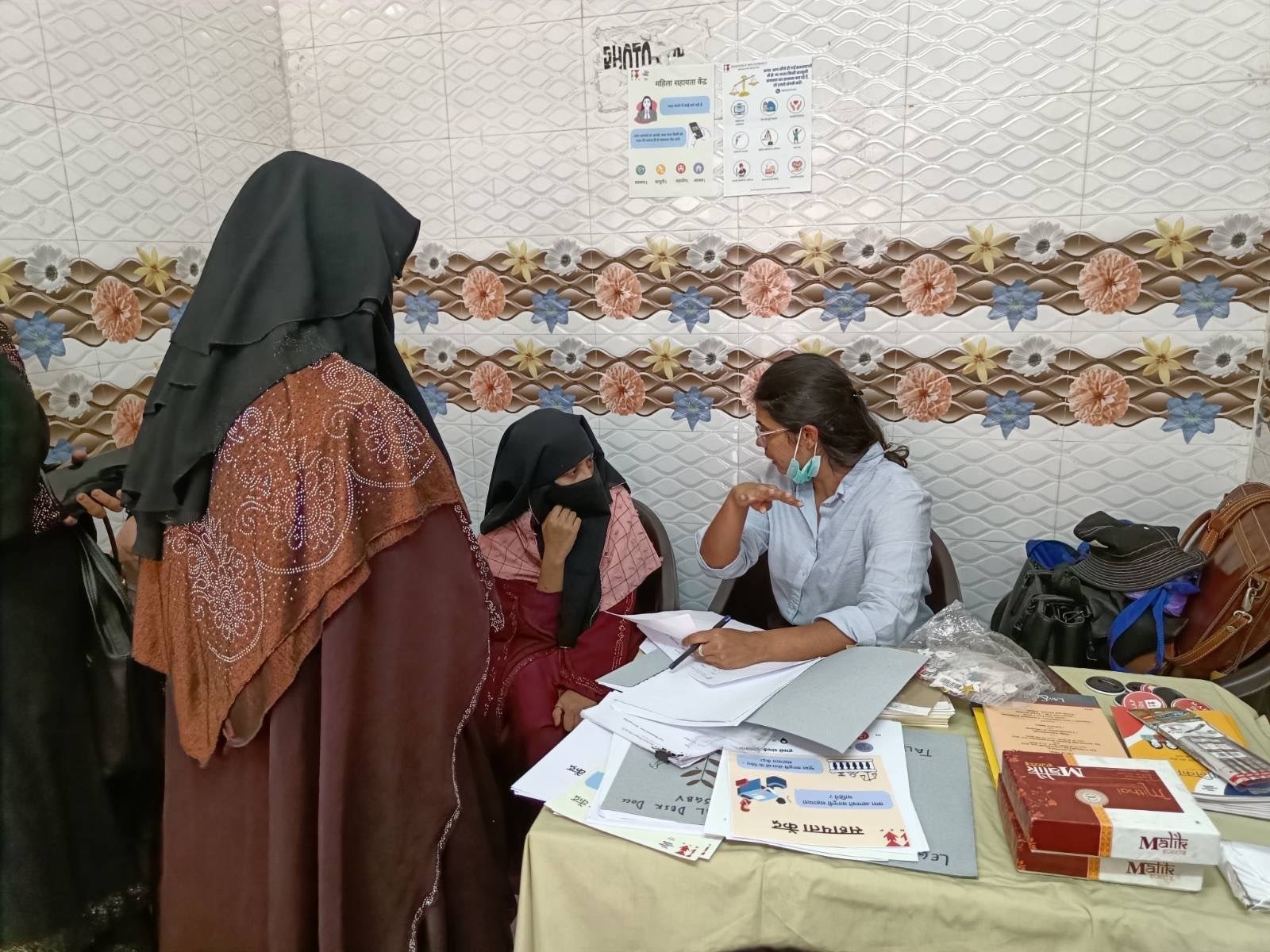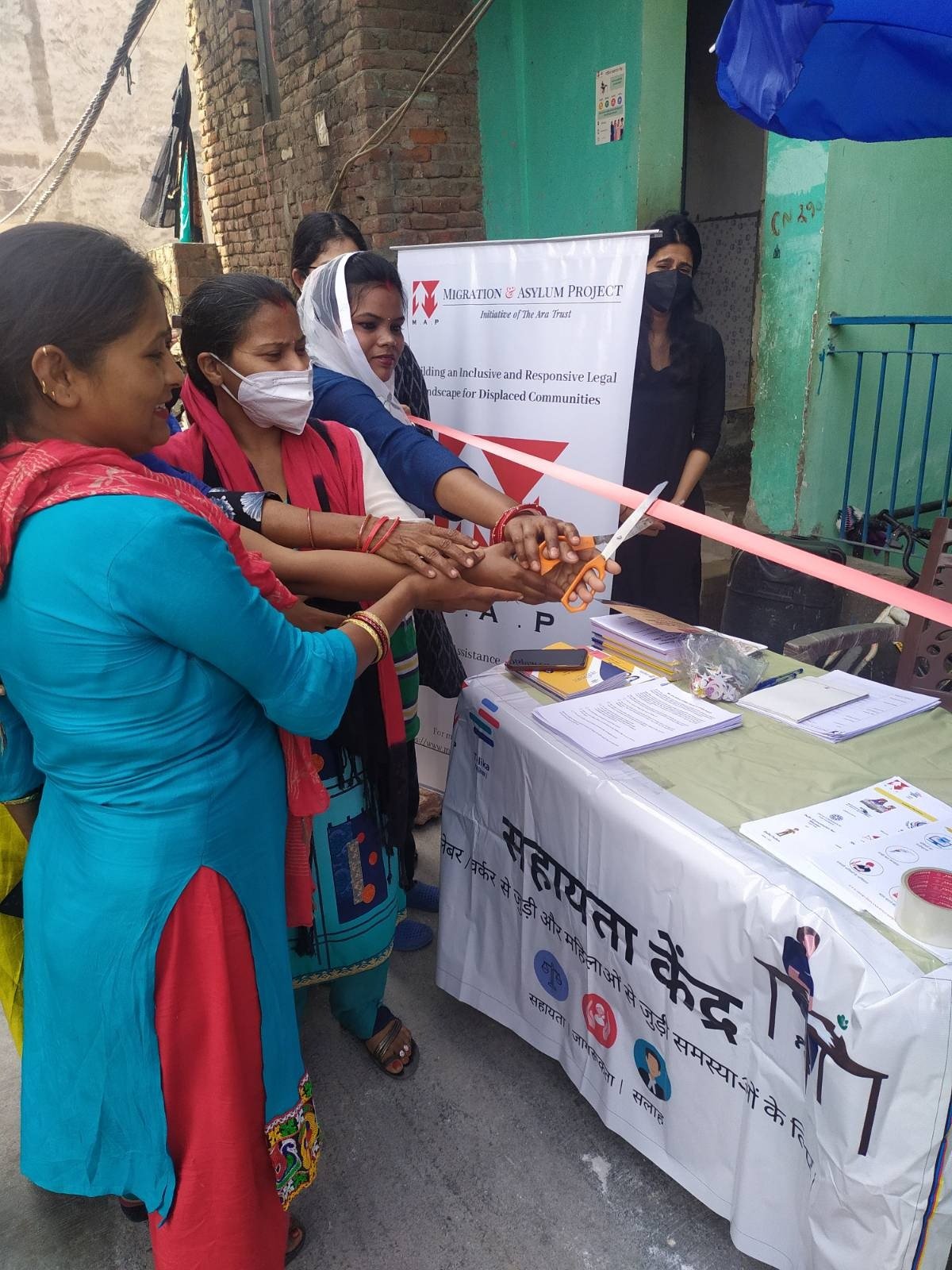Radhika Goyal | 29th April 2022
Community Legal Help Desks: Notes from the Field

A core element of M.A.P.’s Sexual and Gender Based Violence (SGBV) programme is to provide legal aid services to women belonging to displaced communities whose specific needs are often unaddressed by the existing legal justice system and by legal aid mechanisms. In March 2022, M.A.P. operationalized it’s Community Legal Help Desk (‘Legal Desk’) or Sahayata Kendra programme across the six beneficiary locations in New Delhi with a focus on quality legal aid, accessibility for all, and stakeholder oriented approach. In this post, I will briefly discuss the process, challenges, learnings of our journey so far.

Process of Setting up the Legal Desk
In line with the stakeholder oriented approach, M.A.P had engaged with ASHA/Anganwadi workers, NGOs and instituted Community Focal Point Persons (FPPs) and Para Legal Volunteers (PLVs) in each location. By the time we started the Legal Desks in March 2022, ASHA/Anganwadi workers had carried out multiple trainings on SGBV and reproductive health issues, gender discrimination, and domestic laws on SGBV with the beneficiary community. We found that consistent community engagement is absolutely key to developing a relationship of trust with the beneficiaries.
Prior to setting up the legal desk, we held focus group discussions with the FPPs in each location to discuss issues such as timings and specific locations, ways to protect confidentiality for women. We further had a specific promotion plan to develop written, visual, and audio materials to create awareness about the Legal Desk and enlisted the help of these FPPs and ASHA workers to put up posters, share whatsapp statuses, and hand out flyers across their communities. We also endeavoured to create festivity around the inauguration of each desk by having a ribbon cutting ceremony, handing out sweets, and hosting events such as poster making competition for children. We believe centring stakeholders in each stage of decision-making process created a sense of ownership in the community towards the Legal Desk. For example, in each location community members lent us their private spaces and tables and chairs in order to make the Legal Desk as success.
Each Legal Desk is manned by a lawyer, a PLV, a health worker, and FPPs, and through them M.A.P. is able to provide free legal counselling, address health and education concerns and make referrals to relevant organizations that are part of the Talika Network, such a Mahila Panchayats, NGO’s working on health, education, livelihood concerns, among others. Given the nature of cases, we ensured confidentiality by instituting a help line number that would allow women to reach out to us discretely, relocating to a private space with a client when required, and having specific timings only for women.

Challenges and Learnings:
In two months, M.A.P has been approached by nearly 100 beneficiaries, majority of whom require legal assistance with SGBV issues such as domestic violence, maintenance, child custody, and divorce. Despite being a legal desk, we adopted an expansive mandate and offered help on non-legal issues such as health, education, livelihood concerns.
We believe good partnerships with other NGO’s and a robust referral pathway that protects confidentiality and prioritizes quality is a pre-requisite to starting a Legal Help Desk. In our experience, accessibility required that very often legal aid lawyers went directly to the homes and settlements of the survivors who could not approach the desk. Finally, we noted that a majority of the beneficiaries were able to approach us because of our network of community stakeholders.
The Legal Desk programme has not, of course, been without its challenges. The communities we work in are non-homogenous and women are situated along an intersection of multiple identities across class, caste, nationality, religion. It is often challenging to ensure we are accessible to all women. Moreover, we are continually making efforts to increase help seeking behaviour amongst women who are currently suffering violence and offer durable solutions that do not involve criminal liabilities. Finally in our experience, sustained engagements are also required with institutions of justice delivery at the local level: police officers, legal aid lawyers, among others to ensure meaningful access to justice for women.
In conclusion, despite its challenges, the Legal Desk has had a positive response from the community and we have been able to successfully intervene in numerous cases. It is our belief that with continuous innovation and focus on improving quality, accessibility, and centring stakeholders, will allow us to strengthen the Legal Desk and create strong avenues for justice for displaced women.

